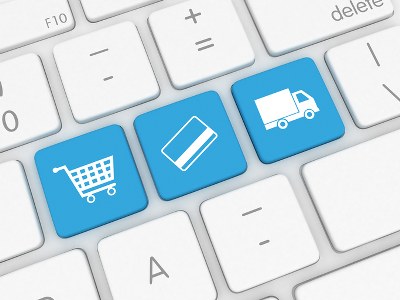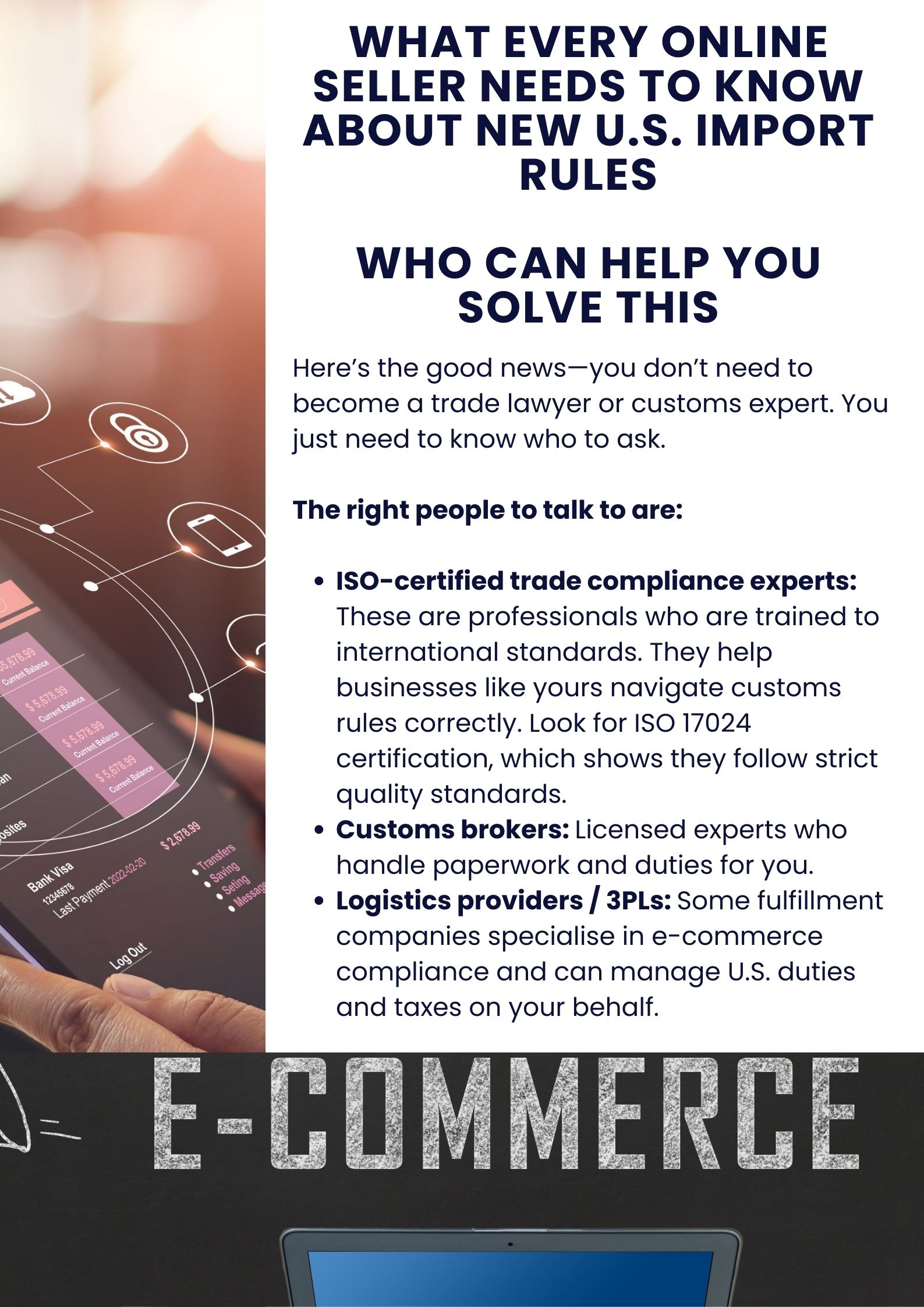What Every Online Seller Needs to Know About New U.S. Import Rules

If you sell online and ship overseas, you’ve probably heard rumblings about new U.S. rules that are shaking up the way parcels get delivered. Maybe you’ve noticed shipping delays, or even that your courier can’t send to the U.S. at all.
Don’t worry—you’re not alone. Most small online sellers never had to think about things like “de minimis” or “rules of origin.” But now, these trade terms are becoming part of daily business. This article will break it down in plain English, show you why it matters, and point you to the right people to ask for help.
1. The U.S. "De Minimis" Rule—What Changed?
For years, U.S. buyers could receive parcels worth up to USD $800 without paying duties or taxes. That made it easy for e-sellers around the world—you could ship straight to U.S. customers with minimal paperwork.
But as of August 29, 2025, the U.S. has ended this rule globally. That means:
· Every parcel, no matter how cheap, can now face duties, taxes, and customs paperwork.
· Australia Post, Royal Mail, and several European postal services have even stopped shipping to the U.S. for now, because the paperwork is unclear and they don’t want parcels stuck at customs.
Translation for e-sellers: Shipping small, low-value orders to U.S. customers is no longer simple.
2. Rules of Origin—Why They Suddenly Matter
Another term you’ll hear a lot now is “Rules of Origin.” This is how customs decides where a product really comes from.
· If your goods are made in one country but use parts from another, customs need to know the real origin.
· Depending on the answer, your product could face higher or lower duties.
· Sometimes you’ll need to prove origin with a Certificate of Origin, which is an official document showing where your goods were made.
Translation for e-sellers: Customs now cares about “where” your product is from, not just “what” it is. If you don’t have the right paperwork, your parcels can get stuck—or cost your customer more money.
3. Why This Matters for Your Online Store
In the past, e-commerce sellers didn’t need to worry about trade compliance. You just packed your orders, printed a shipping label, and off they went.
Now, two things have changed:
1. De Minimis is gone in the U.S. – even low-value items need duties and paperwork.
2. Rules of Origin are enforced. – you need to know where your products “officially” come from.
If you ignore these, you risk:
· Late deliveries (parcels stuck in customs).
· Extra costs for you or your customer.
· Suspended services from your regular shipping provider.
4. Who Can Help You Solve This
Here’s the good news—you don’t need to become a trade lawyer or customs expert. You just need to know who to ask.
The right people to talk to are:
· ISO-certified trade compliance experts: These are professionals who are trained to international standards. They help businesses like yours navigate customs rules correctly. Look for ISO 17024 certification, which shows they follow strict quality standards.
· Customs brokers: Licensed experts who handle paperwork and duties for you.
· Logistics providers / 3PLs: Some fulfillment companies specialise in e-commerce compliance and can manage U.S. duties and taxes on your behalf.
5. Questions You Should Ask
When you speak to an expert, ask simple, practical questions like:
· “How will these new U.S. rules affect my typical parcel size and value?”
· “What paperwork do I need to include with each shipment?”
· “Do I need a Certificate of Origin for my products?”
· “Can you help me calculate duties upfront so my customers don’t get a nasty surprise?”
· “What’s the easiest way to keep my shipping to the U.S. moving smoothly?”
Final Takeaway
You don’t need to fear these changes—but you can’t ignore them either. The U.S. has made the playing field harder for small e-sellers. If you ship internationally, especially to America, you now need to:
· Understand that cheap items aren’t duty-free anymore.
· Learn about Rules of Origin and how they affect your products.
· Find an ISO-certified trade compliance expert or customs broker to guide you.
Think of it this way: you don’t fix your own car engine—you go to a mechanic. The same applies here. Go to the right expert, ask the right questions, and keep your e-commerce business moving forward.
